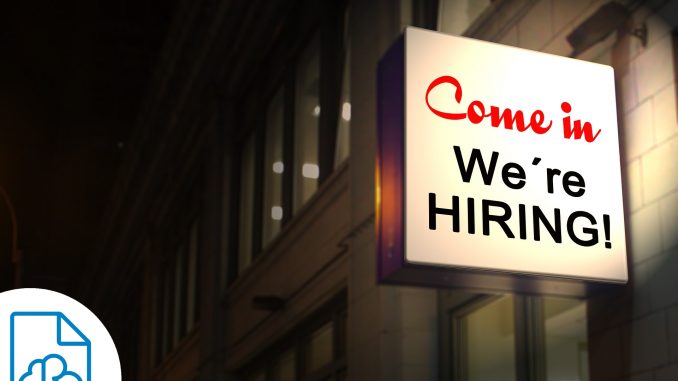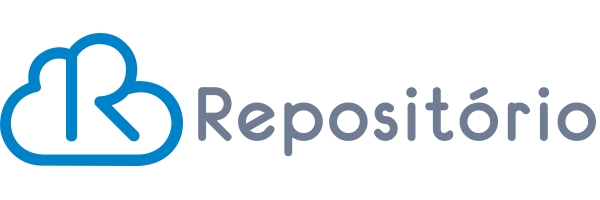
In the first part of this series, I have given a few tips and recommendations on how to optimize the job search activity. In this second part, I will address how to prepare for an interview and what to bring.
Preparing for the Interview
After all the effort dedicated to searching for opportunities, at some point the developer will be invited for an interview. This is a crucial moment, and the candidate should define a strategy as well as plan of what kind of knowledge he or she should bring to the interview.
There is no reason for this to be a difficult or awkward moment, since all the candidates need to do is to talk about their experience and knowledge. However, the reality is often different as few candidates are properly prepared for an interview.
A well-prepared candidate is more likely to score the job.
Preparing for an interview is somewhat tedious because it involves structuring a speech and creating your career canonical story. The upside of this is that once it is well honed, it can be rolled out in future interviews with the minimum effort. All that is needed is a simple tweak to the part related to the target job and the adding further, relevant experiences. The presentation media change may also be required.
As it is impossible to change the past, if done right the first time, this work will pay off and will be used for a long time.
The Candidate’s Profile
There is a lot of controversy surrounding this topic in the context of job interviews. Some people feel invaded when it comes to giving any details of their lives, while others go overboard in this direction. As always, the dosage varies from person to person. As a candidate, you should not be offended as regards to giving details, just metadata, of what you do and/or have done.
The Candidate’s Personal Life
The candidate should be prepared to say a few things about his or her personal life, not in order to create a detailed behavioral profile, but only to show a bit of the person behind the professional. At this point, some questions are common:
- Are you married? Do you have children?
- What do you do in your free time?
- Give me the name of a book you have read and liked.
Candidates should be willing to talk a little about these general aspects of their private lives. If they practice, they can take the initiative and say what they want. If well prepared, they will not be taken by surprise.
An interview is neither a therapy session nor a confession.
A clever technique to help candidates succeed in such a situation is to think of their lives in a picture, such as imagining a photograph of the inside of a warehouse (the warehouse being a virtual image of their lives and workplaces). In such a place, what kind of things, experiences, habits or people in this warehouse would be representative of their routine and habits?
NOTE:
If a candidate is in the middle of an emotionally difficult situation, and he or she does not want to say anything regarding his or her personal life, it should be remembered that there are a lot of things much more important than a career. Perhaps it is not the right time to seek for a new job. It may be more important to solve the personal problems first.
The Candidate’s History
All candidates have a history. The collection of their experiences, if well organized, constitutes an impressive arsenal and the greatest tool for landing the job. However, having a hard time to explain any listed experience or even overstating experiences is not just embarrassing, it could also be a reason for being eliminated from the hiring process.
The Resume
In the previous section, I did not address the way in which a resume should be written. There is a lot of controversy about how long a resume should be. Which is the best model, the complete one or the compact edition? When sending the resume electronically, I believe that the best option is to send a compact one together with a web link to a complete and more in-depth resume. But this is missing the point.
The point is that the candidate should carefully study each item included in his or her resume and be prepared to talk about them in detail. So, it is not a bad idea at all to double check what you have included in it.
The candidate should really know what the contents of his or her resume are.
And the best way to present this is to create a Portfolio, as follows.
A Portfolio
Developers usually compare themselves to artists. I think that this is not a bad comparison as there are many similarities between them, despite the evident differences. Even though many developers consider themselves artists, it is not common that they have portfolios like those of artists.
Create a portfolio to showcase the developer´s work during his or her career.
Using a presentation format, a portfolio is an important tool to show in detail the owner’s knowledge as well as his or her key accomplishments and achieved objectives. Basically, the portfolio is where you can find out what in fact the developer has reached in his or her career. Therefore, having a portfolio is an important tool to get a job. The developer’s portfolio should answer the basic questions: what he or she knows, and what he or she has done so far.
However, it is very difficult, if not impossible, to show either a source code or schematic to demonstrate knowledge in the same way a photographer does with his or her photos, for example. First of all, there is not enough time for evaluation during the interview, and secondly, it might involve confidentiality issues. Nevertheless, one of the advantages of the internet is to enable companies to publish their product catalogs, and the latter may be used by an employee as part of his portfolio.
In order to bring the Portfolio topic to a close, I will add one more tip.
Make sure you can explain your participation in each item of your portfolio and also associate your knowledge with the projects and products included.
Although recommended, a website containing all projects developed by the candidate is not essential. However, the candidate should know by heart all items in his or her portfolio, being able to quickly list them. Many people get confused during an interview because they have never done the mental exercise of creating their portfolios.
The Career History
Usually, the dynamic of a job interview consists of the interviewer going through the candidate’s resume, asking about details of his or her professional life and so on. A better approach would be a narrative conducted by the candidate, the only one who really knows how to tell his or her own professional history. By narrative I mean the process of recounting it like a good story-teller would.
The candidate can structure the story according to his or her convenience, maximizing the time by skipping parts of no real benefit for the target position in question. The less relevant experiences should make room for the ones of greater relevance. The candidate does not need to start from the very beginning of his or her career, but it is important to choose a meaningful starting point.
Candidates should know how to tell their own professional histories.
Knowing what to say and how to say it will avoid, for example, awkward moments of silence during the interview. It is important that the candidate is willing to adjust the story according to the interviewer, who will certainly question some points. Therefore, be prepared to change the course of your story-telling.
About the Job Position
Maybe this is the activity requiring the most repetition in the candidate’s preparation. Each job position will require a bit of study. So, the following tip anticipates an important point:
Looking for a job is a functional activity.
It is an honorable activity, so the candidate should not feel tired of doing the same things several times and should never say that he has no occupation. He is occupied looking for a job.
The Company
It is odd that some candidates do not dedicate even a measly five minutes to study the company that might be their future employer, in spite of living in a world where this activity would take only a few minutes on a computer with internet.
Get informed about your future employer.
By knowing which products the company sells, who its competitors are, and what its market looks like, the candidate demonstrates his or her greater knowledge and a greater professional maturity.
The Job Position
The job position has been widely discussed in the previous section. However, it is good to emphasize that the candidate should identify which of his or her qualities are important for the job position. And this is a must.
Relate your abilities to the ones required for the job position.
The candidate will hardly come in for any surprises if he or she has carried out a good assessment of the target job position. Besides, developers or anyone else with a technical profile usually know full well the business they are in and what to expect, so there is not much left to ask regarding the activities themselves.
Extras
Finally, I will talk about some wild cards that every developer involved in a hiring process should have up his or her sleeve.
Question List
As an interviewer, I always ask the candidates if they have questions for me. They rarely do. Following the interview, before they reach the company’s exit gate, they always remember something. Why does that happen? Because while I am taking them back to the reception desk, they are thinking about something to ask.
Think about what you want to know beforehand.
Although not asking questions does no harm to candidates in their job search, it does not help them either. I consider it much better when the candidates ask their questions during the interview. Therefore, thinking about possible questions before the interview will prevent such a situation, and will benefit the candidate. These are the topics I always recommend asking about:
- The compensation
- The selection process schedule
- The job position itself
- The company
And of course, everything that the candidate wants to know and that will influence his or her decision as regards accepting or rejecting a possible job offer.
Additional Information (Side Projects)
In order not to break the narrative of either a portfolio or work history, I recommend that other activities not directly related to the narrative are introduced upon the interviewer’s request. It might be when the interviewer asks if there is anything else that the candidate wants to mention, for example.
Lets say for instance that the candidate has never attended computer courses, but he or she is a self-taught person who repaired his or her friends’ computers in the past. This can be considered important, depending on the position.
Every experience might be valuable, it depends on the context.
As always, the candidate should assess which experiences of that kind he or she wants to bring in the interview.
When something goes wrong
Unfortunately, not every interviewer is ethical or honest.
Dignity is not negotiable.
In order to avoid a measure of greater impact such as going to court, the candidate should be prepared to leave the interview room and bring to a close an unpleasant situation before it turns into a legal matter, as this would avoid the bringing in of lawyers to defend his or her rights.
I have heard of some abusive processes in which the interviewers have tested the candidates’ resilience by either humiliating or heavily criticizing them. The curious thing is that sometimes they have done so with internship candidates and, more often than not, the resilience of an inexperienced person tends to be much more one of a total detachment (“I do not care”) than the ability to overcome adversity.
Situations where interviewers arrive late for an interview without any explanation for the candidates are commonplace. Many either reschedule or cancel the interview at the last minute. There might be some concerns regarding personal safety. I have never heard such stories with developers (this is more likely in the world of top models), but is always a good idea to have someone to know your whereabouts.
The candidate should be aware of the circumstances under which he or she is not prepared to proceed further with the interview.
The point here is that the candidate should be prepared to know what to do. After all, unexpected situations like these may leave him or her without a ready-made plan of action.
In the next part, The Interview, I will explain the reasons why the items I have mentioned are important to me.





